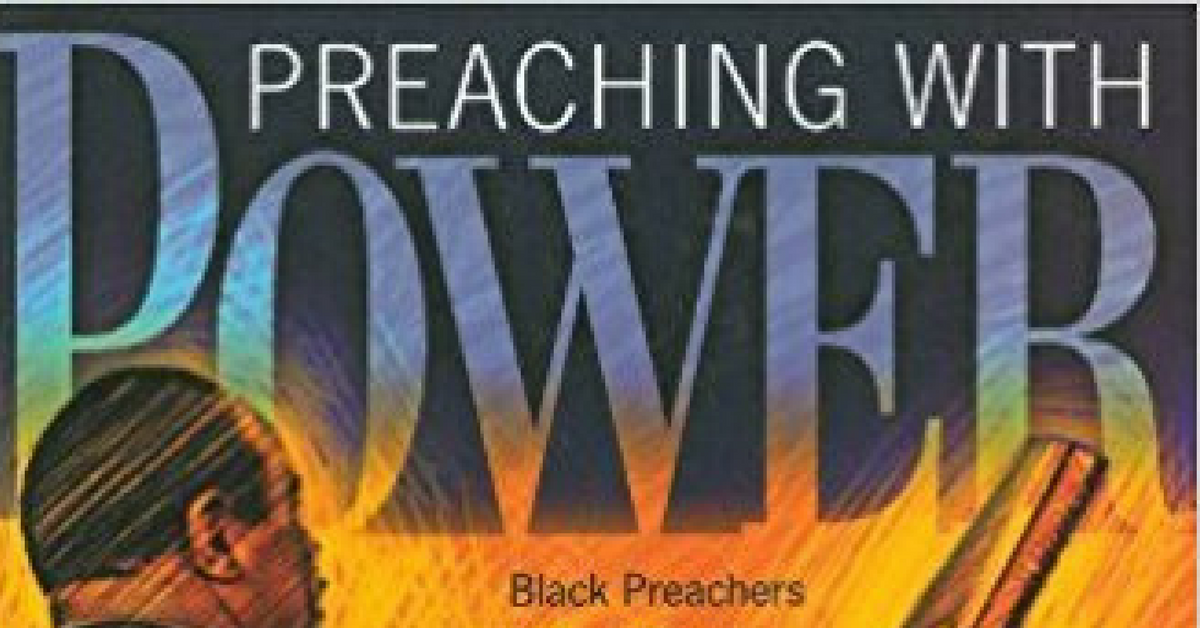The next interview is with E. E. Cleveland. He is probably the greatest Adventist Evangelist of our time. When one thinks of Adventist Evangelists E. E. Cleveland’s name will almost certainly come up
Understanding of Preaching
Elder Cleveland did not explicitly speak about his?theology of preaching, but he did speak of a few important points. First  he notes that the preacher must have a holy boldness. Next, the preacher must be totally dependent on the Holy Spirit. Next, all of our preaching must be Christ-centered.? Cleveland reminds us that we should not allow T. D. Jakes or Rod Parsely to have a corner on preaching Jesus.
he notes that the preacher must have a holy boldness. Next, the preacher must be totally dependent on the Holy Spirit. Next, all of our preaching must be Christ-centered.? Cleveland reminds us that we should not allow T. D. Jakes or Rod Parsely to have a corner on preaching Jesus.
Another interesting point that Cleveland brings out is that the preacher cannot always recognize the difference between a good and a bad sermon.? Just preach your sermon and leave the results to God.? Cleveland tells the story of a time he thouhgt the sermon was not really that good, but someone came, this taught him to just preach.
Method of Sermon Preparation
Once again Elder Cleveland does not really give a method, but he does say that he always prepares by daily reading three texts. First is 2 Samuel 7:8. The second is Nehimiah 13:14. The third is Exodus 23:25.? It is interesting that all three are Old Testament texts which shows how the Adventist preacher and the Black preacher uses the Old Testament just as much as the New.
Understanding of Adventist Preaching
Elder Clevland emphasizes that Jesus must be at the center of our presentations as Adventist ministers. He states that Black Adventist preachers have remembered this. He gives the example of the Sanctuary. He states that Black Advnetists have always kept Jesus first in this doctrine and have not gotten caught up in the perephnalia of the Sanctuary. Elder Cleveland quotes Henry Wright who spoke about the Sanctuary and stated in effect, “I don’t care if the throne is moveable or not, all I care is that there is a thrown and we have an advocate.”
Understanding of Black Preaching
Elder Cleveland emphasizes that it is important to know Black history if you are to be a black preacher. Cleveland believes that Black preaching is not about emotion, but about contextually relating the Gospel to the historic struggles of black people. He believes that?this kind of Black preaching is?totally compatible with Adventist preaching.
Elder Cleveland’s?discussion of the?black struggle for freedom is significant in that he?identifies the freedom movement?as God’s movement. The move for black liberation is not peripheral to God’s hand in history, but it is God’s hand in history. Thus Black history becomes a discussion of God’s acts in history and not merely a discussion of abstract facts.? Black history is transformed into looking for God’s hand in history.? Thus when one speaks of a narrative approach to preaching we can tell the Biblical story as narrative, but we also can tell the narrative of God’s present actions.?
but we also can tell the narrative of God’s present actions.?
Another interesting point about this kind of preaching is that it reminds us that God cares not merely about individuals, but also about groups.? God cares about Black people as a people.? God cares about individuals AND groups.??Revelation teaches us that Jesus hand is over history.? The Seven Churches teach us that God is taking care of the Church throughout history.? Trimming the lamps so that it can truly be the people of God.?? God is actively invovled in helping us individually, but also as a people.? God is not coming back for an individual or even for us as individuals, but God is coming back for a people a remnant.? It is true that we become members of a group individually, but it is also true that Jesus is coming back for the Bride which is the church corporate and universal.
I think Black Preaching can help us bring back this corporate identity to evangelical Christianity whihc has totally ignored the importance of the corporate in spirituality.? Perhaps this is why some have such a hard time explaining why one should go to church and not just stay home and pray by oneself with their own connection to Jesus.





